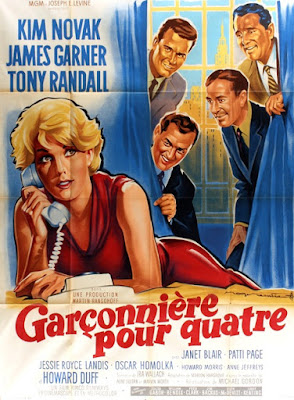The B-52 was the military bomber that captured Baby Boomers imaginations. Thousands of school-age kids even got to gape at the interior of the gorgeous beasts on Field Trips. So this flimsy little story may generate unearned nostalgia among a certain aging demographic. Others, unless drawn to cool late-‘50s color & design, will find little holds attention other than an occasional screen-filling set-up Gordon Douglas (or some Second-Unit director) finds to accommodate the big planes. Karl Malden, Master Sergeant to the incoming fleet of bombers, is under pressure at home to retire after 20 years service. But daughter Natalie Wood rethinks her position after meeting Malden’s new C.O., Colonel Efrem Zimbalist Jr. The two guys have a bad history going back to Korea that comes to a boil on an endurance test flight that goes bad. None of the drama takes hold, and the 20-yr age gap between Wood & Zimbalist makes him seem a bit creepy, leaving Malden to gnaw away on some pretty bare dramatic bones. Wood, though, is at her prettiest, and drives around in a positively lickable yellow convertible. Check it out in the trailer where the colors really ‘pop.’ And don’t miss the Chuck Jones animated short included as an Extra, BOYHOOD DAZE, about a daydreaming kid who has some wild imaginary adventures after he’s sent to his bedroom as punishment. A real CALVIN AND HOBBES vibe on this one, though one section on a Great White Hunter in Darkest Africa may bruise delicate sensibilities. That’d be a shame though as the design & execution of the African warriors, from war masks to marathon-slim legs, is too celebratory & elegant to miss.
SCREWY THOUGHT OF THE DAY: The film isn’t so different than the quasi-recruiting military pics made in the run up to WWII. But with no war to plug into, Tyrone Power & Errol Flynn get swapped out for daddy-figures like Malden & Zimbalist.
ATTENTION MUST BE PAID: That’s attention paid to our unknown Danish poster artist, who absolutely nails the Malden nose. (Give it a click to see it grow.)





























